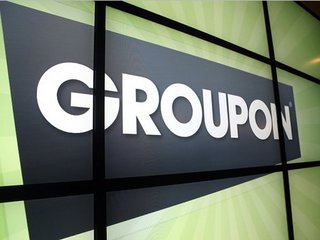
Zulily hit the ground running on its first day of trading. Shares opened at $39.40 and soared as high as $41.32, an 88% increase over the $22 at which shares were originally priced. The company, which is trading under the ticker symbol ZU, closed the day at $37.04. Altogether, the company raised $253 million at a valuation of $4.6 billion.
The company had been expected to raise $253 million at $22 a share.
Before I go any further, can we all stop with the “Zulily IPO/soccer mom investor” jokes? Because first of all, f*ck you. Second of all, yes, Zulily is a company that caters to women—specifically moms. That doesn’t make it any less of a successful e-commerce business, so knock it off.
How successful is Zulily? Well, we can start with the fact that 83% of all orders are placed by returning customers. That rate of repeat usage is pretty valuable in the tech world, and particularly the e-commerce world, which relies on returning customers to stay afloat.
The company, which bills itself as a daily deal site for mothers, launched in January 2010 and has grown steadily since. As of September 2013, the company had 2.6 million active customers (customers who have purchased an item on Zulily in the last year), an increase of 95.8% over the 1.3 million it had as of September 2012, according to its S-1. Meanwhile, net sales more than doubled in 2012 to $331 million from $144 million in 2011.
Revenue per active customer grew 10.3% to $215 as of September 2013, from $195 as of September 2012.
In the first nine months of 2013, the company generated $438.7 million in net sales, an increase of 116% over the first nine months of 2012. Zulily reported a profit of $155,000 as of September 2013.
But as the first daily deals site to go public since Groupon, Zulily isn’t following in very promising footsteps. Groupon closed out its first day of trading at $26 a share, up from $20, and raised $700 million for a valuation of $16.6 billion.
Let me repeat that: at one time, Groupon was valued at $16.6 billion. With a B.
Today, Groupon shares are trading at $10.82, which is up from its all-time low of $2.75 a share. The company’s market cap stands at $7.2 billion.
Zulily has a few key advantages over Groupon’s IPO, though. For one thing, Zulily is already turning a smallish profit, but a profit nonetheless—nothing close to the gaping losses Groupon was posting while it was funneling all of its money into marketing costs. It also has the advantage of not employing any wonky financials (like including the merchant’s cut as part of its net revenue).
Additionally, while Groupon had a problem with inactive customers (in the quarter before its IPO, it had 143 million subscribers but only 30 million had purchased a groupon deal), Zulily’s repeat customer base is thriving. In the first nine months of 2013, Zulily had 2.6 million customers who placed a total of 9.3 million orders at an average of $54 each.
And there’s the reality that Zulily’s founders are seasoned veterans. CEO Darrell Cavens and Chairman Mark Vadon took their previous company, certified diamond purveyor Blue Nile, public back in 2004.
Also boosting optimism, shares of fellow retail/coupons company RetailMeNot are up nearly 56% from its IPO in July.


















